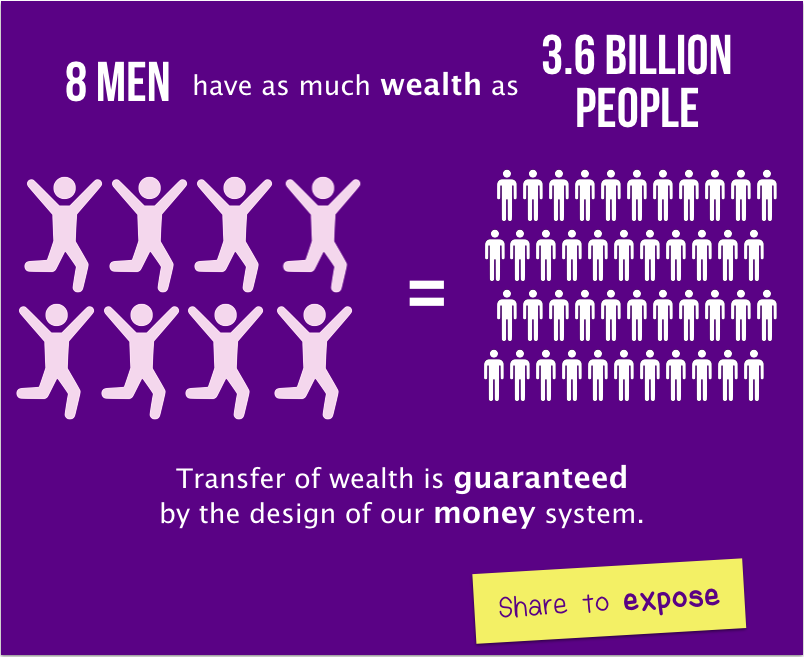Eight men own the same amount of wealth as world’s poorest 3.6 billion people

The world’s eight richest individuals have as much wealth as the 3.6 billion people who make up the poorest half of the world, according to the latest Oxfam report.
The extreme levels of inequality we see today are not normal. Many factors contribute to the growing inequality, but one of the most significant is often overlooked and least understood: the role of money creation by banks.
If we want to seriously tackle inequality, we need to look closely at the functioning of our money system.
Today, the vast majority of all money in the economy is created by private banks when they make loans.
The fact that the nation’s money supply must be borrowed from banks means that we have to pay interest on the entire money supply. This has the effect of transferring income and wealth from the bottom 90% of the population to the top 10%.
Our money system guarantees that inequality will get worse. You can find the evidence in our report Banking, Finance and Income Inequality.
Here’s a 3 minute video, which explains a couple of the key points from the paper:
We’ve spent the last six years researching the problems caused by the current debt-based monetary system and how to fix them. To reduce the rate of growth in wealth inequality we need to take the power to create money away from the banks, and return it to a democratic transparent and accountable process, which would create money free of debt.
Removing the ability of banks to create money would reduce the rate of growth in wealth inequality. The creation of money by the central bank that would have no corresponding interest-bearing debt, means that there will be a stock of money that will be effectively ‘debt-free’, and there will be no need for members of the public to borrow simply to ensure that there is money available in the economy. The resulting lower levels of private debt will mean that less interest is paid overall, and therefore less income is transferred to the top 10% of the population.
The idea has been supported by the Financial Times’ chief economics commentator, Martin Wolf, and highlighted by former Bank of England Governor Mervyn King, former chairman of the UK’s Financial Services Authority, Adair Turner, and a Vice-President of the European Central Bank, Vitor Constâncio.
Find out more here.
